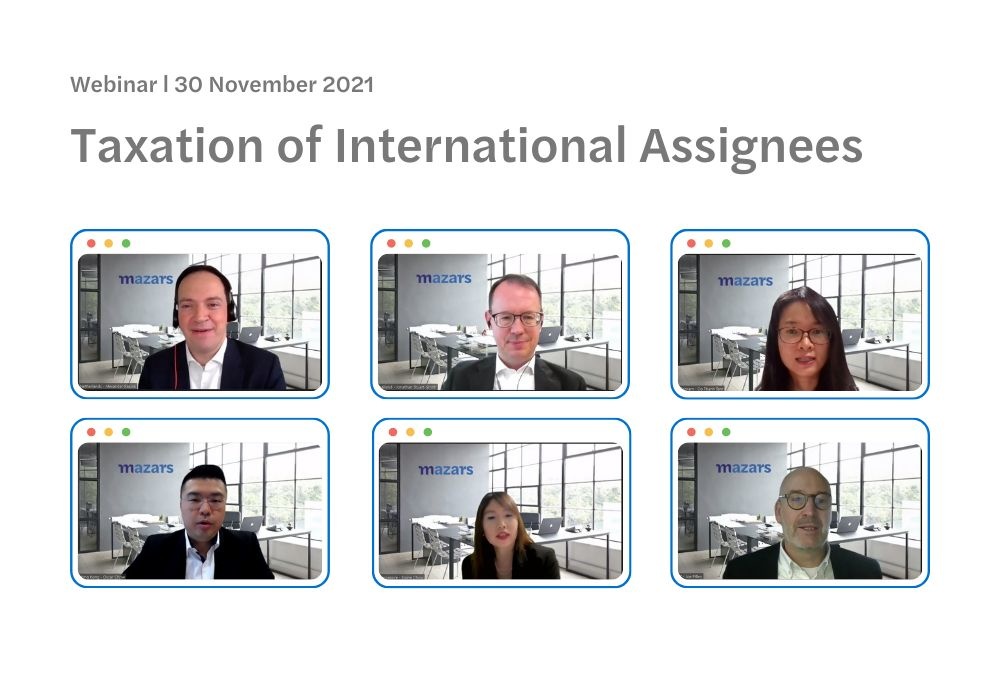Taxation
Mazars highlights growing compliance risks for global mobility
Experts at Mazars discuss the various tax and legal considerations of international assignments in Europe and Asia

M
azars released ‘The Taxation of International Assignees’ webinar report which explores the escalating challenges arising from tax, social security, immigration, and payroll considerations for mobile workforces.
Global mobility continues to evolve amidst rapid digitalisation and the significant shift in remote working sparked by Covid-19. Against this backdrop, the new report draws upon the insights discussed during the Taxation of International Assignees webinar on 30 November 2021 concerning the hiring of international assignees in China, Hong Kong, Singapore, the Netherlands, the United Kingdom (UK), and Vietnam.
Elaine Chow, Tax Director, Mazars, Singapore who moderated the event says: “Employers are facing an increasing pressure on the challenges emerging from a post-pandemic world, and tax authorities around the world are tightening their grip on compliance and promoting inter agency cooperation at a pace not seen before. Non-compliance can lead to serious legal repercussions for both employers and the employees.
She adds, “As we look to 2022, it is important that companies enhance their strategies to effectively manage their cross-border workforces, and place greater focus on understanding country specific regulatory requirements.”
Elaine Chow, Tax Director, Mazars, Singapore
Staying ahead of mobility regulations
The webinar shed light on the latest regulations for hiring of international assignees in different countries, tax implications for digital nomads and how residency plays a role on business travellers, and the new solutions for global mobility services.
Webinar highlights:
- HR and tax departments must navigate the fast-changing government requirements in areas such as tax, social security, and immigration law in their market of choice.
- The rise of digital nomads along with travel restrictions imposed by Covid-19 have driven employees to work in locations they are not employed in, raising significant tax implications for employers
- Managing cross border employments requires a robust and collaborative approach to technology and processes
Alexander Rasink, Global Mobility Services Partner, Mazars, Netherlands continued by saying that employee welfare is a chief area of concern for managing teams across borders.
He stated, "While mobility strategies need to keep pace with the increasing tax complexity, it is imperative to know that relocating employees is not simply about visas and tax liability. A company's greatest asset is its people. Employers must be ready to look beyond the legal requirements in managing a global workforce."
Alexander Rasink, Global Mobility Services Partner, Mazars, Netherlands
Technology to support global mobility
The report also highlights the importance of new tech-enabled solutions in managing the myriad of complex challenges relating to global mobility reporting.
Joe Pilley, Global Mobility Tax Director Mazars, UK commented, “In response to new challenges, global mobility processes often need to be implemented from several different areas of expertise. This complex future demands highly collaborative solutions that can create standardised global process flows, providing consistent results for employers and employees wherever they are.”
Joe Pilley, Global Mobility Tax Director Mazars, UK
The webinar panellists included Oscar Chow, Mazars Hong Kong; Do Thanh Ta, Mazar, Vietnam; Joe Pilley, Mazars UK; Alexander Rasink, Mazars Netherlands; and Jonathan Stuart-Smith, Mazars Thailand.

The Taxation of International Assignees Webinar held by Mazars
Read the full report here: https://www.mazars.sg/Home/Insights/Events/Webinars/Dec-2021-Taxation-of-International-Assignees